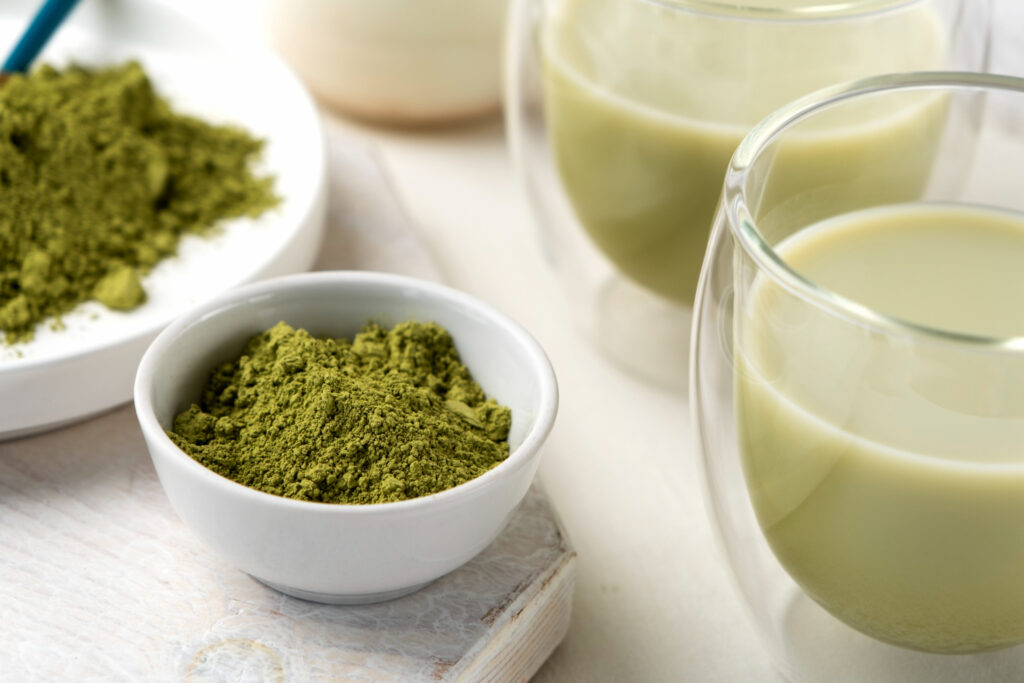
In this article
Moringa oleifera, often celebrated for its potential health benefits, is a plant that has been revered for thousands of years. This plant, native to North India, is rich in antioxidants and bioactive plant compounds. Although researchers have only explored a fraction of its many purported benefits, the findings so far are promising. Below are six health benefits of Moringa oleifera supported by scientific research.
1. Highly Nutritious
Moringa oleifera is a substantial tree known by various names, such as drumstick tree, horseradish tree, and ben oil tree. Almost every part of the tree is edible and used in traditional herbal medicine, particularly in India and Africa. The leaves and pods are especially nutritious.
Nutritional Content of Moringa Leaves:
- Protein: 2 grams
- Vitamin B6: 19% of the Recommended Daily Allowance (RDA)
- Vitamin C: 12% of the RDA
- Iron: 11% of the RDA
- Riboflavin (B2): 11% of the RDA
- Vitamin A (from beta-carotene): 9% of the RDA
- Magnesium: 8% of the RDA
In many Western countries, dried moringa leaves are sold as dietary supplements, available in powder or capsule form. Though the pods contain fewer vitamins and minerals than the leaves, they are particularly high in vitamin C, offering 157% of the daily requirement per cup (100 grams).
In developing countries, where diets often lack essential nutrients, Moringa oleifera can be a critical source of vitamins, minerals, and protein. However, it’s important to note that the leaves may contain high levels of antinutrients, which can inhibit the absorption of these nutrients. Additionally, moringa supplements in capsule form provide negligible amounts of nutrients compared to a balanced diet.
2. Rich in Antioxidants
Antioxidants are crucial in combating free radicals in the body, which can cause oxidative stress and lead to chronic diseases like heart disease and type 2 diabetes. Moringa oleifera leaves contain several antioxidant compounds, including vitamin C, beta-carotene, quercetin, and chlorogenic acid.
Key Antioxidants in Moringa:
- Quercetin: May help lower blood pressure.
- Chlorogenic Acid: Found in coffee, helps moderate blood sugar levels after meals.
A study found that consuming 1.5 teaspoons (7 grams) of moringa leaf powder daily for three months significantly increased blood antioxidant levels. Additionally, moringa leaf extract can act as a food preservative by reducing meat oxidation.
3. Potential to Lower Blood Sugar Levels
Maintaining healthy blood sugar levels is essential, especially for individuals with diabetes.Various studies indicate that Moringa oleifera might assist in reducing blood sugar levels, although the majority of the evidence is derived from animal research. In one study, 30 women taking 1.5 teaspoons of moringa leaf powder daily for three months saw a 13.5% reduction in fasting blood sugar levels. A separate small study discovered that incorporating 50 grams of moringa leaves into a meal decreased the post-meal blood sugar spike by 21%.
These effects are thought to be due to plant compounds like isothiocyanates.
4. Anti-Inflammatory Properties
Inflammation is a natural response to infection or injury but can become a health problem if it persists long-term.Persistent inflammation is associated with numerous illnesses, such as heart disease and cancer. Moringa oleifera contains isothiocyanates, which are believed to be the main anti-inflammatory compounds.
However, current research on moringa’s anti-inflammatory effects is limited to test-tube and animal studies. More research is needed to determine its impact on human health.
5. Cholesterol-Lowering Effects
High cholesterol levels are associated with an increased risk of heart disease. Studies indicate that Moringa oleifera may reduce cholesterol levels in both animals and humans, similar to other plant foods like flaxseeds, oats, and almonds.
6. Protection Against Arsenic Toxicity
Arsenic contamination in food and water is a global issue, with certain types of rice containing high levels. Long-term exposure to arsenic is linked to an increased risk of cancer and heart disease. Studies in mice and rats suggest that Moringa oleifera leaves and seeds may mitigate some effects of arsenic toxicity. While these results are promising, further research is required to determine if they apply to humans.
The Takeaway
Moringa oleifera is an Indian tree with numerous health benefits backed by scientific research. It is highly nutritious, rich in antioxidants, and may help lower blood sugar and cholesterol levels. Moringa also has potential anti-inflammatory properties and may protect against arsenic toxicity. However, while preliminary studies are promising, more research is needed to confirm these benefits in humans. Incorporating moringa into your diet, especially if you lack essential nutrients, can be beneficial. If considering supplements, they are readily available online
A Quick Review
Moringa oleifera, a nutrient-dense tree native to India, offers numerous health benefits. It is rich in antioxidants, can lower blood sugar and cholesterol levels, reduce inflammation, and may protect against arsenic toxicity. While most studies are animal-based, preliminary human research is promising
FAQS
What are the nutritional benefits of Moringa oleifera?
Moringa oleifera leaves are rich in protein, vitamins B6, C, A, riboflavin, and iron, making it a valuable source of nutrients.
Can Moringa oleifera help lower blood sugar levels?
Yes, several studies suggest that Moringa oleifera may help reduce blood sugar levels, though most evidence is from animal studies.
Are there any side effects of consuming Moringa oleifera?
While generally safe, high consumption of moringa leaves may contain antinutrients that can inhibit nutrient absorption.












